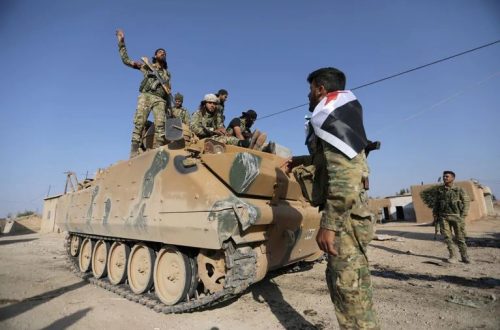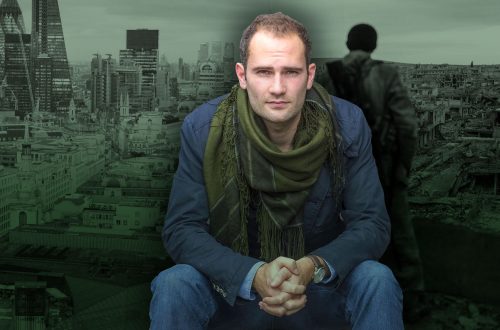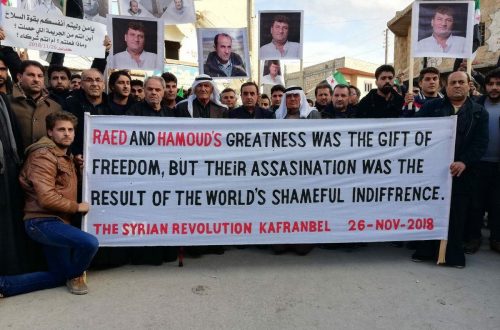Here’s a video to mark the one-year anniversary of the Syrian uprising and to call for UN action (which of course is being blocked by China and Russia):
At Now Lebanon, Hussein Ibish makes the case for actions the US can take now short of military intervention:
It’s a red herring to suggest that because the situation is complex, American leverage is limited and coordination with allies is essential, therefore little can be done. It may be that the diplomatic groundwork and the level of the crisis on the ground, particularly with regard to Turkish policy, is not yet sufficient to establish safe havens or buffer zones. However, that does not preclude developing a policy that anticipates and begins to prepare for limited intervention when it becomes necessary…
In the meantime, there are some clear steps the Obama administration can take to enhance its policies and behave proactively rather than reactively. First, it should stop talking about the “inevitable” fall of the Syrian regime and clearly announce that regime change in Damascus is a goal of US policy. Having determined and announced that, a great deal of clarity should follow.
Second, the United States should, like the European Union and others, formally recognize the Syrian National Council as “a legitimate representative of the Syrian people.”
Third, the administration should publish a series of benchmarks that the Syrian National Council, or any other opposition group seeking this role, must accomplish in order to gain eventual recognition as, in effect, a government in exile. These should include, but not be limited to, developing well-structured relations with the Free Syrian Army and other armed rebel groups, and doing much more to reach out to Syrian confessional and ethnic minorities, as well as offering far-reaching, ironclad guarantees about their status in a post-Assad future.
Fourth, Washington should begin identifying those in the political opposition as well as armed groups on the ground that it believes can represent a better future for Syria. And then it must do everything possible, within the bounds of prudence, to strengthen their hands against both the regime and other opposition forces.
None of these are wild-eyed ideas or flights of fancy. Nor are they reckless or ill-advised. In fact, they are the minimum conceivable corrective to a policy of inaction that is both reckless and ill-advised.


